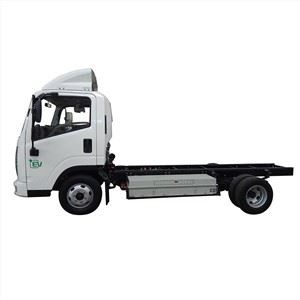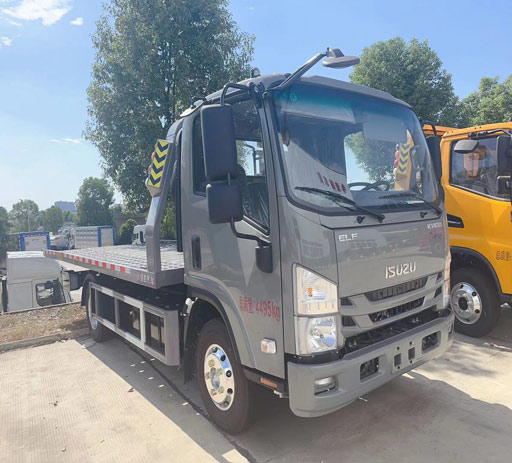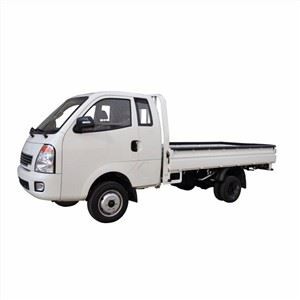How Much Does an Armored Truck Weigh? Understanding Armored Vehicle Weight
Armored trucks are specialized vehicles designed to transport valuable cargo securely. They are solidly built to withstand various threats, which significantly impacts their weight. In this article, we will explore how much armored trucks weigh, the factors contributing to their weight, and other important aspects of these vehicles. Whether you are a business owner considering armored transport or just curious about the mechanics behind these vehicles, this article will provide comprehensive insights.
What is an Armored Truck?
Armored trucks are vehicles designed to transport cash, valuable goods, and sensitive documents securely. Their structure typically includes reinforced steel bodies, bullet-resistant glass, and enhanced security features. Commonly used by banks, cash-in-transit companies, and large retail operations, these vehicles play a critical role in ensuring the safety of high-value shipments.
Weight Overview of Armored Trucks

The weight of an armored truck can vary significantly based on its make, model, and the level of armor it possesses. Generally, the weight may range from 10,000 to over 30,000 pounds. Factors influencing weight include:
1. The Type of Armored Truck
Different types of armored trucks serve various purposes, and each has a unique weight. Here are some common types with their approximate weights:
| Type of Armored Truck | Approximate Weight |
|---|---|
| Cash-in-Transit Vehicle | 15,000 – 25,000 lbs |
| Military Armored Truck | 20,000 – 30,000 lbs |
| Luxury Armored SUV | 10,000 – 15,000 lbs |
2. Armoring Level
The weight of an armored truck increases with the level of protection it provides. Vehicles are typically rated based on the protection level according to the Underwriters Laboratories (UL) standards, including:
- Level I: Basic protection (Minor ballistic threats)
- Level II: Enhanced protection (Small caliber handguns)
- Level III: Moderate protection (Shotguns and rifles)
- Level IV: High protection (Armor-piercing rounds)
As you progress to a higher level of protection, the added materials (like ballistic steel and Kevlar) increase the vehicle’s weight.
3. Vehicle Size and Model
The size and model of the truck also heavily influence its weight. A larger vehicle with more cargo capacity will inherently weigh more. For instance, a standard delivery truck weighs less than a specialized military-grade armored vehicle.
Importance of Weight in Armored Vehicles
The weight of an armored truck is not merely a statistic; it plays a pivotal role in its functionality and operational capacity. Here are some reasons why weight matters:
1. Stability and Handling
Heavier vehicles tend to offer better stability, especially under load. However, significant weight can impact handling and fuel efficiency. Armored trucks are engineered to maintain a balance between weight and maneuverability.
2. Armor Effectiveness
A vehicle’s weight directly relates to the effectiveness of its armor. Heavier trucks can incorporate more substantial protection mechanisms, making them harder targets for potential threats.
3. Fuel Efficiency
The heavier the truck, the more fuel it consumes. Armored trucks typically have modified engines to accommodate their weight but will still experience lower fuel efficiency than standard vehicles.
Choosing the Right Armored Truck
1. Assess Your Needs
Before selecting an armored truck, assess the specific requirements of your business. Factors to consider include:
- The type and volume of goods being transported
- Threat level in your area
- Cost of operation and maintenance
2. Evaluate Weight Capacity
Understanding the weight capacity is crucial to ensure compliance with transport regulations and ensure safety during transit. Always check the manufacturer’s specifications regarding payload capacity and overall weight.
3. Consider the Cost
Armored trucks can be significantly more expensive than standard vehicles due to their design, construction materials, and functionality. Make sure to factor in the total cost of ownership, including insurance and maintenance.
Examples of Popular Armored Trucks and Their Weights
1. Ford F550 Armored Truck
The Ford F550 is a well-known choice for cash-in-transit vehicles. It typically weighs around 19,000 pounds when armored.
2. International MXT Armored Truck
This truck is popular in military and security applications, with an approximate weight of 25,000 pounds, offering significant protection levels.
3. Mercedes-Benz G-Class (Armored Edition)
The armored version of this luxury SUV weighs about 15,000 pounds and is used by affluent individuals and businesses for secure transport.
Safety Features in Armored Trucks
Given their purpose, armored trucks come equipped with various safety features designed to protect both the cargo and the crew.
1. Bullet-Resistant Glass
All armored trucks are outfitted with glass designed to withstand gunfire and other impacts, ensuring the safety of individuals inside.
2. Reinforced Steel Body

The vehicles’ bodies are reinforced with heavy-duty steel to deter and absorb blasts or attacks effectively.
3. Alarms and Tracking Systems
Many modern armored trucks include integrated alarm systems and GPS tracking, making it easier to manage assets and respond to emergencies.
Maintenance of Armored Trucks
Proper maintenance is vital to ensure the efficiency and longevity of an armored truck. Here are some tips for keeping armored vehicles in peak condition:
1. Regular Inspections
Schedule consistent inspections to check for wear and tear on the armor, brakes, and suspension systems, as heavy armor can impact the vehicle’s performance.
2. Engine Maintenance
Take extra care of the engine, ensuring it’s serviced regularly. Given the added weight, the engine works harder, necessitating thorough checks for potential issues.
3. Tire Care
Armored trucks require special tires designed to handle the additional weight. Regularly check tire pressure and tread levels to maintain safety.
FAQ Section
1. How much does a standard armored truck weigh?
A standard armored truck typically weighs between 10,000 and 30,000 pounds, depending on its type and armor level.
2. What affects the weight of an armored truck?

The weight is influenced by various factors, including the vehicle type, level of armoring, and the size/model of the truck.
3. Do armored trucks perform well in fuel efficiency?
Due to their weight and modifications, armored trucks generally have lower fuel efficiency than standard vehicles.
4. Can I drive an armored truck without special licensing?
In many places, operating an armored truck may require a special license or permits due to its size and the nature of its use.
5. Are there any legal regulations regarding armored trucks?
Yes, regulations vary by region, and it’s essential to ensure compliance with local laws related to heavy vehicles and transporting valuables.
6. How can I choose the right armored truck for my business?
Assess your specific needs, evaluate weight capacity, and consider safety features, costs, and the level of protection required for your operations.
